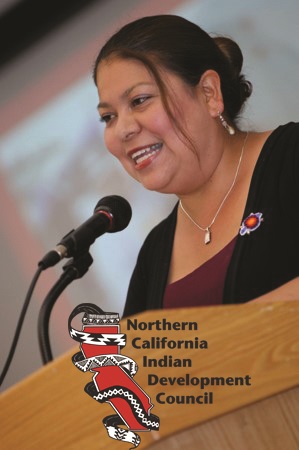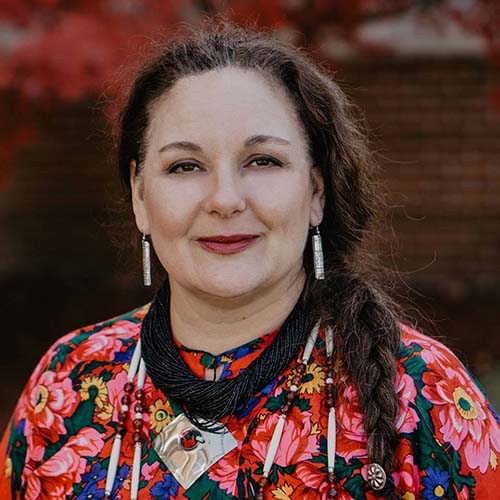DEL NORTE COUNTY, Calif. — A newly launched regional pilot program is highlighting educational equity for Indigenous students in K-12 schools.

The Indigenous Education Advocacy Project is a pilot program created out of an alliance between the American Civil Liberties Union Foundation of Northern California and the Northern California Indian Development Council to focus on advancing educational equity for Native American students on the northern California redwood coast including Del Norte, Humboldt Counties and adjacent tribal land.
Founded in 1934, the ACLU-NC is an affiliate of the national ACLU, which aims to defend and preserve the individual rights and liberties guaranteed to every person in this country by the Constitution and laws of the United States.
The NCIDC was founded in 1976 to meet the needs of American Indian communities by researching, developing and administering social and economic development programs. The NCIDC provides support and technical assistance for the development of these programs in addition to working to conserve and preserve historic and archeological sites and resources. It consists of up to 13 tribes and tribally affiliated organizations including Blue Lake Rancheria, Elk Valley Rancheria, Indian Action Council, Karuk Tribe, Nor-El-Muk Band of Wintu Indians, Quartz Valley Indian Reservation, Tolowa Dee-ni’ Nation, Trinidad Rancheria, Tsnungwe of California, United Indian Health Services, Wintu Educational & Cultural Council of Northern California, Wiyot Tribe and Yurok Tribe.
According to the ACLU-NC 2020 Summer Newsletter, the organization launched the Indigenous Education Advocacy Project to work with the NCIDC to provide legal and policy support for “systems and policy change,” and provided funding for the “Indigenous Education Advocate position, which will work to educate and empower Native students, families, and communities to advocate for their rights in the public school system.”
Rain Archambeau Marshall (Ihanktonwan-Yankton Sioux) says she’s a product of the Indian Relocation Program. Marshall’s parents, who relocated to California from Oklahoma and South Dakota, met at Humboldt State University in Arcata, Calif., the area where Marshall was later born. She grew up on the North Coast but returned to her South Dakota homeland to live and work on the Yankton Sioux Tribe Reservation while earning her law degree at University of South Dakota.
The Indigenous Education Advocacy Project began in March as the COVID-19 pandemic hit the region. “I would have been meeting in person with students, parents, Indian Education, tribes, and councilors; I would be conducting Know Your Rights workshops in tribal areas,” said Marshall, who noted that one of the most difficult burdens of the COVID-19 restrictions has been the adverse effect on traditional Indigenous ways of communication.
“It’s hindered my ability to communicate with the community, eating with and meeting and training the community leaders in person,” Marshall said. “It’s just not the same because of how Indian people usually interact.”
The Indigenous Education Advocacy Project will service local tribes, public K–12 schools, parent committees and community members. All advocacy is carried out within the school administration process, but, if necessary, cases are referred outside of the administration. Marshall said the advocacy service includes, but is not limited to, workshops, sample parent to school letters, advocacy for truancy, academic meetings, advocacy at disciplinary proceedings, religious freedom (such as feathers at graduation or time off for ceremony), and intervention in instances of LGBTQ and racial discrimination and bullying by students or staff.
Their helper affiliate is the Disability Rights Education and Defense Fund, which assists with advocacy for special education and those students who need special accommodations including Individual Education Plans and 504 plans.
More Stories Like This
Hanging a Red Dress for Christmas: MMIP, Native Higher Education, and Hope for a Better New YearNative Students Can Win $5,000 Scholarship, International Distribution in Pendleton Design Contest
American Indian College Fund Raises Alarm Over Plan to Shift Native Programs Away From the Dept. of Education
MacKenzie Scott Foundation Gives $5 Million Contribution to Little Priest Tribal College
Tribal Leaders Push Back on Dismantling of U.S. Department of Education
Help us defend tribal sovereignty.
At Native News Online, our mission is rooted in telling the stories that strengthen sovereignty and uplift Indigenous voices — not just at year’s end, but every single day.
Because of your generosity last year, we were able to keep our reporters on the ground in tribal communities, at national gatherings and in the halls of Congress — covering the issues that matter most to Indian Country: sovereignty, culture, education, health and economic opportunity.
That support sustained us through a tough year in 2025. Now, as we look to the year ahead, we need your help right now to ensure warrior journalism remains strong — reporting that defends tribal sovereignty, amplifies Native truth, and holds power accountable.
 The stakes couldn't be higher. Your support keeps Native voices heard, Native stories told and Native sovereignty defended.
The stakes couldn't be higher. Your support keeps Native voices heard, Native stories told and Native sovereignty defended.
Stand with Warrior Journalism today.
Levi Rickert (Potawatomi), Editor & Publisher

